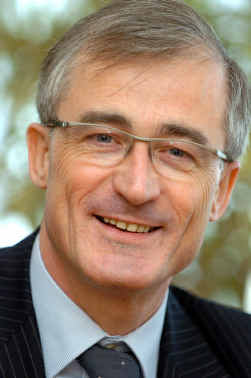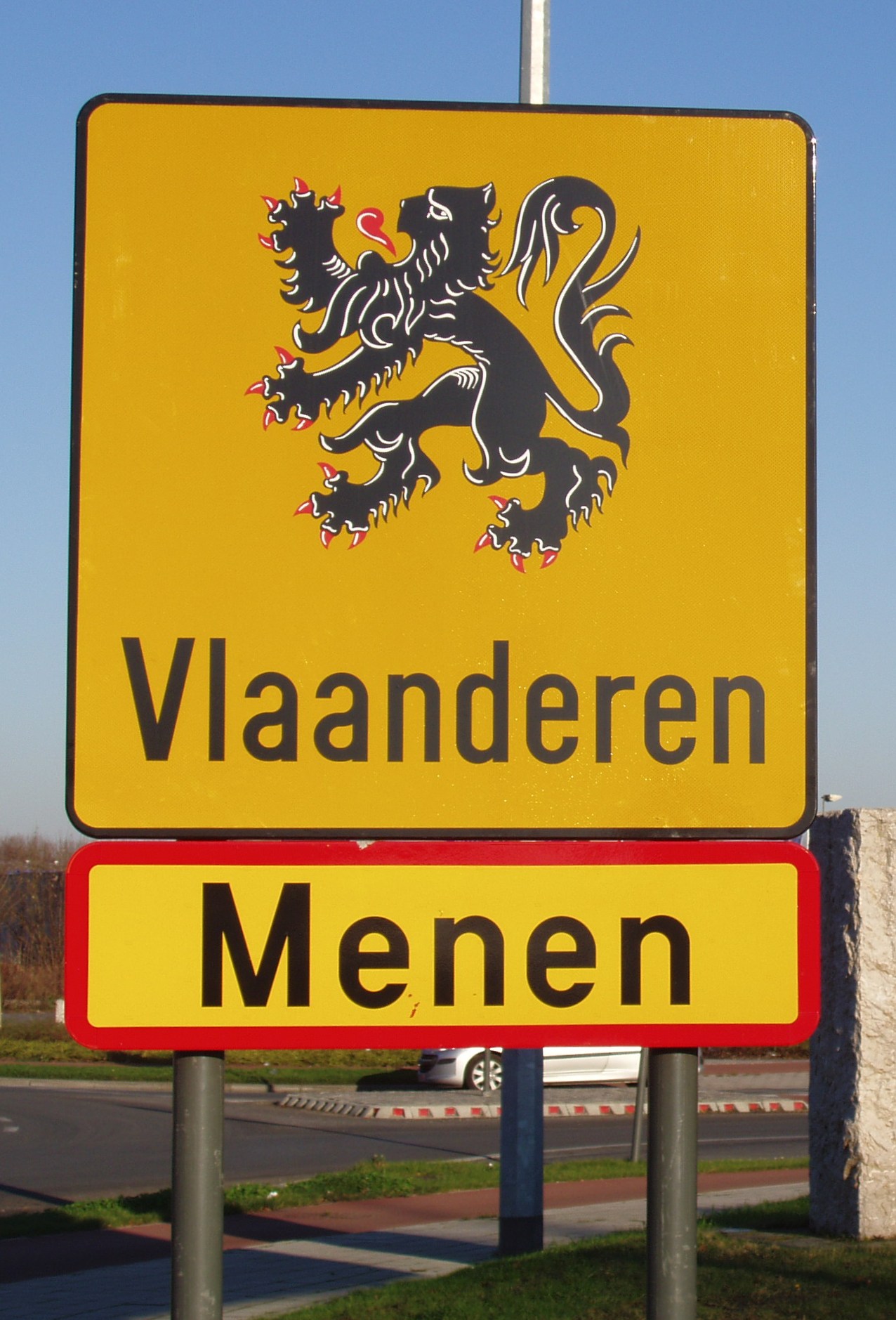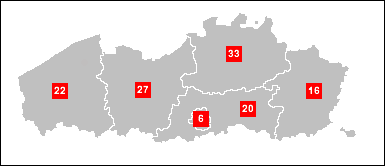|
Minister-President Of Flanders
The minister-president of Flanders () is the Head of government, head of the Flemish Government, which is the executive branch of the Flemish Region and Flemish Community.See the communities, regions and language areas of Belgium. The incumbent officeholder is Matthias Diependaele, who took over from Jan Jambon, following the 2024 Belgian regional elections. The current government is made up of three parties, the New Flemish Alliance (N-VA), Vooruit (political party), Vooruit, and Christian Democratic and Flemish (CD&V). The ministers were sworn in on 30 September 2024. The government consists of nine ministers, five for the N-VA, two for Vooruit and two for CD&V. Appointment Following the election of the Flemish Parliament, a Flemish Government is formed with a maximum of eleven ministers. The largest party in the government coalition may choose the minister-president. Following the oath of office of all ministers before the Flemish Parliament, the minister-president alone takes ... [...More Info...] [...Related Items...] OR: [Wikipedia] [Google] [Baidu] |
Flag Of Flanders
The flag of Flanders, sometimes called the ''Vlaamse Leeuw'' ("Flemish Lion") or ''leeuwenvlag'' ("Lion flag"), is the flag of the Flemish Community and Flemish Region in Belgium. The flag was officially adopted by the Cultural Council for the Dutch Cultural Community (''Cultuurraad voor de Nederlandse Cultuurgemeenschap'') in 1973, and later, in 1985, by its successor, the Flemish Parliament. In 1990, the coat of arms was also adopted as an official symbol. The flag of Flanders is described as ''Or, a lion rampant armed and langued Gules.'' History History of the lion The Flemish lion derives from the arms of the Counts of Flanders. Their first appearance is on a seal of Count Philip, Count of Flanders, Philip of Alsace, dating from 1163. As such they constitute the oldest of the many territorial arms bearing a lion in the Low Countries. Still, Count Philip was not the first of his line to bear a lion, for his cousin, William of Ypres, already used a seal with a lion passa ... [...More Info...] [...Related Items...] OR: [Wikipedia] [Google] [Baidu] |
Flanders
Flanders ( or ; ) is the Dutch language, Dutch-speaking northern portion of Belgium and one of the communities, regions and language areas of Belgium. However, there are several overlapping definitions, including ones related to culture, language, politics, and history, and sometimes involving neighbouring countries. The demonym associated with Flanders is Flemings, Fleming, while the corresponding adjective is Flemish people, Flemish, which can also refer to the collective of Dutch dialects spoken in that area, or more generally the Belgian variant of Standard Dutch. Most Flemings live within the Flemish Region, which is a federal state within Belgium with its own elected government. However, like Belgium itself, the official capital of Flanders is the City of Brussels, which lies within the Brussels, Brussels-Capital Region, not the Flemish Region, and the majority of residents there are French speaking. The powers of the Flemish Government in Brussels are limited mainly ... [...More Info...] [...Related Items...] OR: [Wikipedia] [Google] [Baidu] |
1981 Belgian General Election
General elections were held in Belgium Belgium, officially the Kingdom of Belgium, is a country in Northwestern Europe. Situated in a coastal lowland region known as the Low Countries, it is bordered by the Netherlands to the north, Germany to the east, Luxembourg to the southeas ... on 8 November 1981. Voter turnout was 94.5% in the Chamber election and 94.6% in the Senate election.Nohlen & Stöver, p291 Elections were also held for the nine provincial councils and for the Council of the German Cultural Community. They were the first elections after the voting age was lowered from 21 to 18. This contributed to the success of the socialist parties and the green parties (Agalev and Ecolo). The traditionally largest Christian People's Party saw significant losses, with only 43 of the 212 seats in the Chamber of Representatives. The result was considered an election upset. Results Chamber of Representatives Senate References {{Belgian elections 1981 elections in ... [...More Info...] [...Related Items...] OR: [Wikipedia] [Google] [Baidu] |
Brussels
Brussels, officially the Brussels-Capital Region, (All text and all but one graphic show the English name as Brussels-Capital Region.) is a Communities, regions and language areas of Belgium#Regions, region of Belgium comprising #Municipalities, 19 municipalities, including the City of Brussels, which is the capital of Belgium. The Brussels-Capital Region is located in the central portion of the country. It is a part of both the French Community of Belgium and the Flemish Community, and is separate from the Flemish Region (Flanders), within which it forms an enclave, and the Walloon Region (Wallonia), located less than to the south. Brussels grew from a small rural settlement on the river Senne (river), Senne to become an important city-region in Europe. Since the end of the Second World War, it has been a major centre for international politics and home to numerous international organisations, politicians, Diplomacy, diplomats and civil servants. Brussels is the ''de facto' ... [...More Info...] [...Related Items...] OR: [Wikipedia] [Google] [Baidu] |
Place Des Martyrs, Brussels
The (French language, French, ) or (Dutch language, Dutch, ), meaning "Martyrs' Square", is a historic Town square, square in central Brussels, Belgium. Its current name refers to the martyrs of the ''September Days'' of the Belgian Revolution of 1830. Originally, the square was called the / after Saint Michael, patron saint of the City of Brussels. It was laid out in a uniform Neoclassical architecture, neoclassical style between 1774 and 1776, based on the designs of the architect . Over 400 heroes of the Belgian Revolution lie buried in a crypt beneath the cobblestones. Many lie not far from where they were shot, in fierce battles amid the Brussels streets and barricades. Nowadays, the square is home to cabinet offices of the Flemish Government, including those of the Minister-President of Flanders, Flemish Minister-President, as well as a theatre: the ''Théâtre des Martyrs''. The Place des Martyrs is located in the Neighbourhoods in Brussels#Marais–Jacqmain Quarter, M ... [...More Info...] [...Related Items...] OR: [Wikipedia] [Google] [Baidu] |
Flemish Parliament
The Flemish Parliament (Dutch language, Dutch: , formerly called Flemish Council or ''Vlaamse Raad'') constitutes the legislature, legislative power in Flanders for matters which fall within the competence of Flanders, both as a geographic region and as a cultural community of Belgium (unlike the French Community of Belgium, French Community and Wallonia, which each have separate legislatures: the Parliament of the French Community and the Parliament of Wallonia). The Flemish Parliament approves Decree (Belgium), decrees, which are Flemish laws, applicable to all persons in the Flemish Region, and to Flemish institutions in Brussels; it appoints and supervises the Flemish Government; and it approves the Flemish budget. The Flemish Parliament meets in the Flemish Parliament building in central City of Brussels, Brussels, and its members and staff are housed in the House of the Flemish Representatives. History From 1830 until 1970 Belgium was a unitary state with a single govern ... [...More Info...] [...Related Items...] OR: [Wikipedia] [Google] [Baidu] |
Christian Democratic And Flemish
Christian Democratic and Flemish (, ; CD&V) is a Flemish Christian-democratic political party in Belgium. The party has historical ties to both trade unionism ( ACV) and trade associations ( UNIZO) and the Farmer's League. Until 2001, the party was named the Christian People's Party (''Christelijke Volkspartij'' , CVP). It was traditionally the largest political party of Flanders, until it was overtaken by the New Flemish Alliance (N-VA) in the 2010s. CD&V participated in most governments and has generally the largest number of mayors. Most prime ministers of Belgium and minister-presidents of Flanders have been CD&V politicians. Herman Van Rompuy, the president of the European Council from 2009 to 2014, is one of the leading politicians of CD&V. CD&V is a member of the European People's Party (EPP) and Centrist Democrat International. History The history of the CD&V dates back to the 19th century. It originated in the 19th century Catholic Party. At the end of the century, ... [...More Info...] [...Related Items...] OR: [Wikipedia] [Google] [Baidu] |
Vooruit (political Party)
Vooruit (, Dutch for Forward) is a Flemish social democratic political party in Belgium. It was formerly known as the (Flemish) Socialist Party (1978–2001: ''Socialistische Partij'', SP; 2001–2021: ''Socialistische Partij Anders'' , , SP.A) until 21 March 2021, when its current name was adopted. The party was founded following the linguistic split of the unitary Belgian Socialist Party in 1978, which also produced the Francophone Socialist Party. The Belgian Socialist Party itself consisted of former members of the Belgian Labour Party. From December 2011 to September 2014, the party was part of the Di Rupo Government, along with its Francophone counterpart. In 2020, it re-entered federal government as part of the De Croo Government. The party has been a part of the Flemish Government several times. History 1885–1940 1940–1978 Since 1978 The party was the big winner in the 2003 election, running on the SP.A–Spirit joint list (cartel) with the so ... [...More Info...] [...Related Items...] OR: [Wikipedia] [Google] [Baidu] |
New Flemish Alliance
The New Flemish Alliance ( ; N-VA) is a Flemish Movement, Flemish nationalist, Conservatism, conservative Political parties in Belgium, political party in Belgium. The party was established in 2001 by the right-leaning faction of the centrist-nationalist People's Union (Belgium), People's Union (VU). The N-VA is a Regionalism (politics), regionalist and Confederation, confederalist movement that self-identifies with the promotion of civic nationalism.Manifesto of the New Flemish Alliance point 13: "Inclusion for newcomers" (in Dutch). Within the Flemish Movement, the party strives for the peaceful and gradual transformation of Belgium into a confederal country. In recent years it has become the largest party of Flanders as well as of Belgium as a whole, and it participated in the ... [...More Info...] [...Related Items...] OR: [Wikipedia] [Google] [Baidu] |
2024 Belgian Regional Elections
The 2024 Belgian regional elections were held on Sunday 9 June, the same day as the 2024 European Parliament election as well as the Belgian federal election. In the regional elections, new representatives are chosen for the Flemish Parliament, Walloon Parliament, Brussels Parliament and the Parliament of the German-speaking Community. The Parliament of the French Community is composed of all elected members of the Walloon Parliament (German-speaking members are replaced) and 19 of the French-speaking members of the Brussels Parliament. Electoral system The regional parliaments have limited power over their own election; federal law largely regulates this and the federal government organises the elections, which occur per Article 117 of the Constitution on the same day as the European Parliament elections. As such, all regional parliaments are elected using proportional representation under the D'Hondt method. Flemish Parliament 124 members of the Flemish Parliament w ... [...More Info...] [...Related Items...] OR: [Wikipedia] [Google] [Baidu] |
Jan Jambon
Johan "Jan" Martin Jozef Jambon (born 26 April 1960) is a Belgian businessman and politician of the New Flemish Alliance (N-VA) who has been serving as a Deputy Prime Minister and as the Minister of Finance, Pensions, National Lottery and Federal Culture Institutions in the De Wever Government since february 2025. Before that, he served as Minister-President of Flanders from 2019 to 2024. He replaced Kris Peeters as a member of the Belgian Chamber of Representatives in 2007. The N-VA was, at that time, partnered with the Christian-Democratic and Flemish party. In June 2010 and May 2014, he was re-elected on an N-VA list. He became mayor of Brasschaat in 2013 after his party won the local elections in 2012. In November 2014, he was replaced as acting mayor by Koen Verberck (also N-VA), after joining the new Federal Government. In October 2014, he became Deputy Prime Minister and Minister of the Interior and Security, charged with the direction of public buildings, in the Mic ... [...More Info...] [...Related Items...] OR: [Wikipedia] [Google] [Baidu] |
Communities, Regions And Language Areas Of Belgium
Belgium is a federation, federal state comprising three communities and three regions that are based on four language areas. For each of these subdivision types, the subdivisions together make up the entire country; in other words, the types overlap. The language areas were established by the History of Belgium#The rise of the federal state, Second Gilson Act, which entered into force on 2 August 1963. The division into language areas was included in the Constitution of Belgium, Belgian Constitution in 1970. Through state reform in Belgium, constitutional reforms in the 1970s and 1980s, regionalism (politics), regionalisation of the unitary state led to a three-tiered federation: federalism, federal, regional, and community governments were created, a compromise designed to minimize linguistic, cultural, social, and economic tensions. Schematic overview This is a schematic overview of the basic federal structure of Belgium as defined by Title I of the Belgian Constitution. Ea ... [...More Info...] [...Related Items...] OR: [Wikipedia] [Google] [Baidu] |






